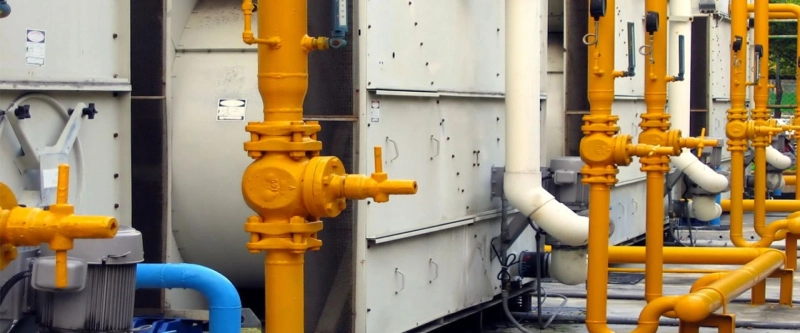The main function of boiler water is for creating high-quality steam which permits the boiler to transport heat all through the whole industrial facility. Because of this important function, it is vital that one must include a water treatment program for the boiler in the preventive maintenance practices for ensuring the integrity of the industrial boiler.
The treatment plans for boiler water mainly concentrate on getting rid of chemical impurities which can corrode the equipment. By controlling the quality of feed water and incorporating regular treatments, optimal conditions will be created for long term use of the boiler. This can lead to cost savings and operational efficiencies for the company.
Need for boiler treatment
Quality of water is imperative for safe and ideal boiler operations. A feed water system that is improperly treated can lead to scaling of auxiliary piping, safety equipment and boiler internals. Such corrosion will cause reduced efficiency of the boiler, thermal fatigue and finally, boiler failure in worst cases. The damaging impact of the untreated feed water causes disruption in the process of steam production, which results in high costs of operation and booming expenses. Also, it results in reducing the lifespan of equipment, causing a rise in capital expenditure.
How is the treatment procedure?
When a boiler water treatment is established, one can gain feedback in real-time about the boiler system so that any issue arising from them causing poor water quality, can be dealt with. The following 3 steps can be incorporated into the practices of preventive maintenance of boiler water treatment program:
- Removal of hard water constituents
Usually, water treatment starts with sediment filters for removing water softeners and suspended solids for getting rid of Magnesium, Calcium and other metal molecules. Such chemicals cause hard water and result in scale build-up inside the boiler as well as related fittings and piping.
- Pre-heating of feed water
The next step in the process of water treatment is the pre-heating of feed water that is one of the fundamental modes of mechanical de-aeration (the method of eliminating dissolved oxygen from the water). The process of pre-heating is typically conducted in either the de-aerator or feed water tank, making use of supplementary steam.
- Treatment of feed water with needed chemicals
Finally, most boiler rooms add any needed chemicals to the feed water for removing any left-over oxygen as well as proper conditioning of water and the metal of fittings, piping and other equipment, if required.
On the whole, it is recommended that water samples must be taken every day such that one is always aware of real-time about any chemical impurities and take action accordingly. In the case of other services, the implementation of a monthly program of water treatment will ensure that one is pro-active in caring for the boiler system for preventing damages and potential failures of boilers.
Common issues
During the treatment of boiler water system, there can emerge several issues. In case the feed water system is monitored, there is a need to search for the following signs to ensure that the system is running safely and effectively as part of a boiler water treatment program:
- Build-up of scale
In boilers, water hardness is the main source of scales. Common contaminants of feed water are Silica, Iron, Magnesium, Aluminium and Calcium. When water is heated up, these minerals form hard deposits. It is vital to ascertain hardness levels of water since scaling lowers water flow in pipes and finally, prevents effective heat transfer.
- Corrosion
Any dissolved carbon dioxide or oxygen in the feed water can adhere to the walls of the equipment like metal piping. This causes corrosion or breakdown of metal elements leading to stress in the system and cracking. This results in more severe problems for the boiler. Making use of high-quality scavengers of oxygen or de-aerators will help in the removal of such gases.
- Sludge
Suspended materials form this in the water which settles on hot boiler tubes or any other surface. Such sedimentary deposit formed by water reduces the efficiency of heating and can lead to failures of tubes, compromised reliability of boiler and restricted circulation. A water treatment professional will monitor the impact of contaminants, causing sludge and will conduct a boiler blow down when required to get rid of any accumulations of sludge.
- Water foaming
In case there is a high quantum of dissolved solids at the surface of the water, such impurities will foam and evaporate along with the steam which will together reduce the efficacy of the boiler. For preventing foaming of water, the water treatment experts will monitor levels of water and keep up a low level of alkalinity and dissolved solids in the boiler.



